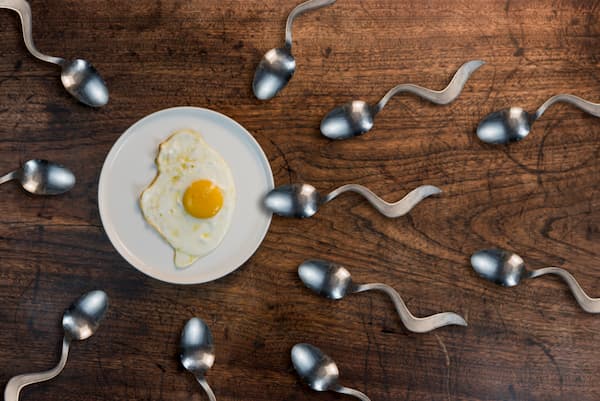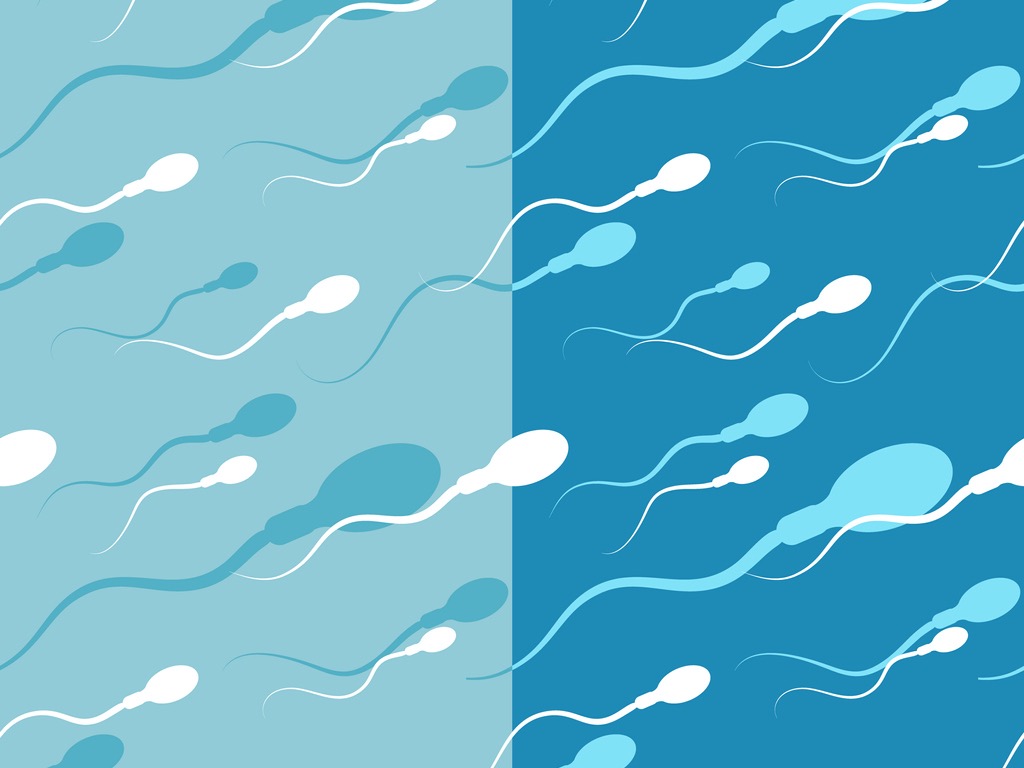Due to the risk of genetic disease or problems with sperm and/or eggs, some couples may opt to use a sperm and/or egg donor to conceive.
Donors are people who decide to donate their sperm or eggs. They undergo medical screening to test for conditions such as sexually transmitted infections or genetic diseases. A donor’s frozen sperm can be used for intrauterine insemination or in vitro fertilization. A donor’s eggs can be used fresh or frozen for cycles of in vitro fertilization.
The egg donor undergoes ovarian stimulation and egg retrieval while the receiver gets medication to prepare her uterus for implantation.
When couples are diagnosed with both male and female factor infertility, donated embryos can be used. These embryos are grown in vitro from donated sperm and eggs.
Using a third-party donor or a surrogate can be challenging, practically, financially and emotionally.
DID YOU KNOW?
It may be hard to find a donor and/or a surrogate in Canada as it is currently illegal to pay a donor or a surrogate for their gametes or the use of their womb.
You will need to see a counsellor and possibly a lawyer to ensure both you and your partner are emotionally ready for the journey, and to ensure that you are entering into an arrangement that will fit your needs. You and your partner need to be on the same page throughout your journey. This starts with a thorough discussion about how you feel about being biologically unrelated to your child (if you are using a donor) and/or not being able to experience pregnancy first-hand (if you are using a surrogate).
Reasons to consider using a third party
Potential reasons for using donor sperm include:
- The absence of sperm or severe problems with the movement or shape of the sperm (click here to learn more about male-factor infertility).
- The presence of a genetic condition that you do not want to pass on to your children.
Potential reasons for using donor eggs include:
- You do not have a female partner.
- Advanced maternal age.
- There aren’t many eggs left (medical speak: diminished ovarian reserve).
- The eggs that are left aren’t up to snuff (medical speak: poor egg quality).
- Absence of ovaries.
- The drugs used to stimulate egg production in the ovaries have not resulted in enough healthy eggs.
- The presence of a genetic condition that you do not want to pass on to your children.
Potential reasons for using an embryo donor include:
- Both you and your partner lack good quality sperm and eggs that can come together to create a healthy embryo (medical speak: lack of viable gametes).
- If you need to use donor sperm or eggs, using an embryo donor may be a good option for you because:
- Embryo donation is generally less expensive than egg donation or sperm donation.
- Embryo donation uses already existing embryos that may otherwise be discarded.
- This means that you won’t have to find an egg donor or sperm donor or worry about asking someone to undergo ovarian stimulation to produce eggs just for you.
- You and your partner have decided that if both of you can’t be biologically related to your child, then neither of you want to be.
- You and your partner have decided that the option to experience being pregnant and giving birth is more desirable than adoption.
Potential reasons for using a surrogate:
- You do not have a female partner.
- The female partner doesn’t have a uterus.
- The female partner can’t carry to term or has experienced repeated miscarriages.
- The female partner is not healthy enough to carry a pregnancy to term.
- The intended mother takes medications that may cause birth defects, such as some thyroid medications, anti-convulsant medications and blood-thinning drugs.
- There is something wrong with the womb (medical speak: uterine structural problems). Sometimes the uterus makes it difficult to get pregnant or sustain a pregnancy.
- Two types of surrogacy
- Gestational surrogacy - The surrogate is not biologically related to the child she is carrying. The eggs and sperm or donor eggs and/or sperm are transferred to the surrogate.
- When the surrogate is not genetically connected to the child, it reduces the chance that they could claim to be the parent of your child.
- Using your own gametes means that one or both of you will be genetically related to the child. This genetic connection is important to some parents as they are unable to experience the pregnancy and birth.
- Traditional surrogacy - This is when the surrogate’s own egg is used. She is either inseminated with the intended father’s sperm or donor sperm.
- This option is becoming less common as advances in IVF make it easier for you to use your own sperm and eggs.
- Gestational surrogacy - The surrogate is not biologically related to the child she is carrying. The eggs and sperm or donor eggs and/or sperm are transferred to the surrogate.
- Want more information about surrogacy, donor eggs, sperm and embryos?
Pros and cons of donation
Pros
- Using a donor allows you and your partner to experience pregnancy together.
- This allows a woman to also experience breastfeeding.
- For couples using an egg or sperm donor, one of you will be biologically related to your child, and may inherit some of that person’s features.
- If you use a known donor who is a family member, the donor could have similar genetic characteristics to the partner who is not able to provide gametes. This could help lessen any concerns about lack of genetic connection.
- Higher success rates because the eggs and sperm generally come from healthy young men and women (See Table 1).
Cons
- You and/or your partner will not be genetically related to your child. It’s important to consider how this lack of genetic connection will affect your views of the baby. However, most research shows that parents don’t have any problem bonding with their non-genetic child.
- Contact or lack of contact with the donors. Depending on if you use a known, anonymous or open-id donors, you will have different levels of contact.
- There are costs associated with using a gamete donor or surrogate. These costs vary depending on the procedure that you use. Consult your healthcare provider to learn more about these costs.
Table 1: Success Rates of Gamete Donation and Surrogacy
| Type of Procedure | Chances you’ll get pregnant |
| Egg donation | 42-59% |
| Sperm donation | Similar to base procedure e.g., IUI, ICSI, IVF |
| Embryo donation | 10-59% (depends on female donor age and embryo quality) |
| Surrogacy | 10-48% (depends on age of the woman whose eggs are used and embryo quality) |
Challenges of egg, sperm and embryo donation
- Conflict with cultural or religious beliefs
- Some people may feel concerned about third-party involvement. They may feel that the use of an unknown donor creates an adulterous relationship; or be concerned about the lack of ability to pass down family genes. Talking it out with your partner and consulting your religious leader may be helpful.
- Telling other people about donation
- Family and friends - Discuss with your partner whom you are going to tell and when. Although some patients find it helpful telling close family members and friends who can offer support, others find that the stigma of using third-party gametes makes this difficult. If you’re being selective about whom you are telling, make it clear that this is confidential information. Be prepared in case this personal information, like other private family matters, is leaked.
- The child – It is recommended to tell your child during early childhood how they were conceived - and tell them often. Those who are not told and find out later in life often report feeling lied to and/or have a crisis in identity. This information is harder to keep private today because of genetic testing. There are some great children’s books to help you with this process.
- Contact with the Donor
- Contact with the donor - If you are using a donor from a donor bank you may have the option of choosing how much contact you and/or your potential child will have with the donor. Many donors are becoming more open to id-release, meaning that your child will have the potential to meet the donor after they turn a specific age (usually 18). However, the majority of donors are still purely anonymous, meaning that neither you nor your child will be able to connect with the donor.
- Benefits of open-id donors
- You will be able to keep up-to-date with their medical history.
- Your child will have the option to meet their biological parent in the future, if they desire.
- Sometimes just the knowledge that it is possible to contact the donor will comfort your child, even if they decide not to connect.
- Knowing the donor’s identity can help determine if there are donor siblings, and ensure that your child doesn’t unknowingly enter into a romantic relationship with a half-sibling.
- Alternatives to open-id
- Registering your child on the Donor Sibling Registry.
- New genetic tests offered from companies like 23andme and ancestry.ca can be used to match your child with others who have a similar donor profile. This could be used to find donor siblings. The ability to find donor siblings is dependent on them also registering for this matching function.
- Registering your child on the Donor Sibling Registry.
- Will it feel like our child?
- Worrying about a lack of connection with your child is normal. If you feel saddened by the idea of not having a biological child, give yourself permission to grieve.
- It can be helpful when preparing for the donor process to:
- Think of other people in your life who were raised by their non-biological parents, such as stepchildren, adopted children or foster children.
- Identify specific things that have helped forge their relationship, like time spent together, creating family traditions and sharing belief systems.
- Familial bonding happens in many ways and most families are able to create a special connection with their child.
- Create family traditions that you can share with your future child.
- Remind yourself of how overcoming the challenges of donation/surrogacy shows that you really wanted this child.
- Think of other people in your life who were raised by their non-biological parents, such as stepchildren, adopted children or foster children.
- Consider how you may feel if your child wants to find their donor or donor siblings. Try to see this not as a threat to you as parents, but rather a way for your child to expand their identity.
- Separating your identity as the child’s parents and the donor’s identity as a donor can be done through language. When you talk to your child about their biological roots, avoid using words such as “parent,” “father” or “mother.”
- Consider joining an online or in-person support group to meet other parents who have chosen this path. This will help you get an idea of both the joys and challenges associated with this option.
Risks
Are there risks to our (potential) child, if we conceive?
There is a slight chance that a child born as a result of fertility treatments will be of lower birth weight and/or preterm. This risk depends on your partner’s age, current health status, number of embryos transferred and treatment type.











